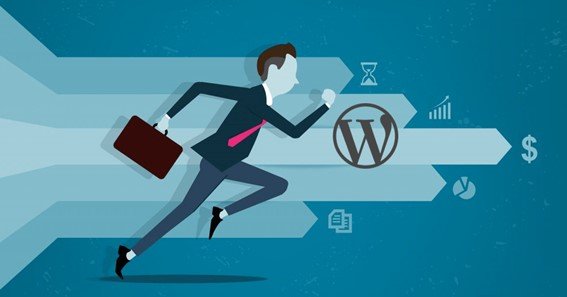Visiting a painfully slow website is like walking into a shop and having to crane your neck trying to find someone to serve you. It’s an unnecessary hassle and we all have better things to do.
Like it or not, the speed at which your website loads is an important ranking factor for Google. But more importantly, it impacts the overall user experience.
If you want people to remember your website fondly – and hopefully convert into customers, then you’re going to need to speed things up a bit.
Read on for some quick & easy optimizations that’ll get things moving!
1. Upgrade your hosting
The first and easiest change you can make to improve your page loading speed is changing or upgrading your hosting.
For the best results, ideally you should be on a private server. If you aren’t quite sure, contact your web hosting serving and see what options they can offer you. Otherwise, you may need to take your hosting elsewhere.
2. Tidy up your plugins
Go through all of your website’s plugins and identify which are essential and which are not. There’s a good chance that you may even have inactive plugins installed from the early days.
Whatever the case, there’s usually always room to trim the fat.
3. Optimise image and video sizes
Image and video optimization is an excellent way to speed up your website. The long and short of it is, take all of the image or video files that are active on your website and reduce them in size, without compromising the quality of resolution.
There are many image compression tools you can use to achieve this, trimming the image file sizes significantly.
In addition, it’s also worth considering which images or videos can be removed entirely. There is such a thing as going a little bit overboard.
Oh! And don’t forget to go through your back-end gallery and delete any files that are no longer in use.
4. Consider using a CDN
A CDN (or content delivery network) is essentially a geographically distributed group of servers that work in tandem to provide your website users the fastest possible connection.
Simply put, whichever server is closest to each specific website visitor will provide the website’s static files and all other necessary information.
This approach is particularly handy if you expect to have traffic from all over the world. However, if you are a small, local business, it might not be worth the effort.
5. Cache your web pages
Another effective page load speed hack is to cache your website’s pages. Caching stores copies of your web pages thus minimising the amount of work required for the server to generate and serve a web page for a new website visitor.
Bonus: Let the professionals do the grunt work!
And of course the easiest page load speed hack of all is to outsource all of these tasks to the experts. The reality is, while the above 5 tips are among the easiest, there are many other technical optimizations you can make in the back-end of your website to speed things up – all of which are far more technical and time-intensive.
For the best results in exchange for minimal work: hire a reputable SEO agency and let them do the grunt work for you.
If you don’t relish the idea of going into the back-end of your website and fiddling around with everything, this is without a doubt the best (and safest) alternative solution.
Click Here – What Is Electric Discharge?






